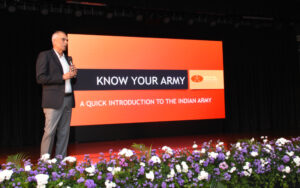What is ICSE and ICSE’s Full Form?
ISCE stands for Indian Certificate of Secondary Education. Under the New Education Policy of 1986, a private body named the Council for the Indian School Certificate Examination (CISCE) was established to conduct ICSE exams. The ISCE curriculum was introduced to impart education on a broad spectrum, covering diverse subjects. It has been considered a challenging board as it involves a vast syllabus, has a strict grading system, and is highly competitive.
ISCE Subjects Overview
The ISCE designs and follows a unique curriculum that is comprehensive and relevant. The syllabus is rigorous and includes core and elective subjects. The subjects have been grouped into 3 categories, namely:
Group 1: This includes only compulsory subjects like
- English: English is the medium of education, and students are strictly advised to communicate in English. It has been a compulsory subject since early classes. Hence, students hold a strong command over the English language, which also helps them develop communication skills and straightforward exams like IELTS, etc.
- Second Language: With English as the primary language, students are given the option to choose a second language, which can either be Indian languages such as Hindi, Kannada, Telugu, Malayalam, etc., or modern foreign languages. This is a gateway to exploring and learning new languages outside the conventional stream.
- Social Studies: Civics, History, and Geography are grouped under this category. This is an all-encompassing subject that educates about diversified topics. It strikes a balance between the arts and the humanities.
Group 2: Out of a list of seven subjects, only two subjects are to be chosen under this category, which envisages:
- Mathematics: From basic to advanced, mathematics enhances critical thinking, problem-solving, and computational capabilities. It is one such subject that helps students for a lifetime.
- Science: The Physics, Chemistry, and Biology trio teaches from fundamentals to complex levels, laying a solid foundation for higher education. Students who wish to opt for the science stream in 11th and 12th grade have an edge since most topics will be covered in the syllabus.
- Economics: the study of concepts that drive the economy, such as production, consumption, distribution, demand, supply, and the financial sector.
- Classical Language: This includes the study of grammar and literature in six classical languages: mainly Kannada, Tamil, Sanskrit, Malayalam, Telugu, and Odia.
- Commercial Studies: It teaches students the concepts applied in commercial activities such as businesses, finance and accounting, marketing and sales, human resources, etc.
- Environmental Science: It focuses on the different areas of the environment, like ecosystems, habitats, pollution, sustainable development, etc.
- Modern Foreign Languages: This includes the study of languages such as German, Spanish, or French.
Group 3: Under this category, one subject should be chosen among multiple subjects, like:
- Computer Applications
- Economic Applications
- Yoga
- Physical Education
- Cookery
- Commercial Applications
- Art
- Performing Arts
- Home Science
- Fashion Design
- Environmental Applications
- Technical Drawing Applications
- Mass Media and Communication
- Hospitality Management
- Beauty and Wellness
ISCE Marking Scheme
Group 1 consists of three compulsory subjects. Each subject is conducted for 100 marks with a duration of 2 hours. Eighty marks are based on an external examination, while 20 marks are assigned based on an internal assessment.
The marking system for subjects in Group 2 is similar to Group 1, i.e., 80% is awarded based on marks scored in finals, and 20% is internal assessment. The marking scheme in Group 3 varies from the above two: 50% marks are awarded for external exams and 50% for internal exams.
To pass any subject, the student must score a minimum of 35%. The internal assessment marks depend on project work, portfolios, etc. Each question is allotted specific marks, and answers should be written according to the marks. There is no negative marking.
A student must compulsorily write six subjects and pass five subjects, including English. Credits 1–9 are assigned for external exams, while grades A–E are used for internal exams. Internal grades A, B, and C represent very good, good, and satisfactory performance. D and E demonstrate failure. Marks 1 and 2 signify very good performance; 3, 4, and 5 denote a pass with credit; 6 and 7 indicate a pass, and scores beyond 8 designate failure.
Comparison with other boards
The ISCE syllabus is extensive, with English as the medium of instruction. It offers flexibility in choosing some elective subjects, allowing the students to explore their interests apart from mandatory ones. It strikes a balance between the arts and humanities.
| Criteria | ICSE | CBSE | State Board |
| Curriculum | Extensive and detailed | Less extensive compared to ICSE | Less rigorous in comparison to ISCE and CBSE |
| Language of instruction | English | English and Hindi | State’s regional language |
| Subjects | Includes Arts, Sciences and Humanities | More focus on core subjects | Consists of some standard subjects along with the regional ones. |
| Grading system | The percentage system is followed. | A 9-point scale is used. | Typically, it is a percentage-based system, with some exceptions. |
| Board exams | CISCE conducts class 10 and 12th board exams, which are challenging. | The CBSE board conducts exams for classes 10 and 12. | The respective state boards conduct board exams. |
Benefits of ISCE Education
- Comprehensive syllabus: ISCE includes many subjects, and the curriculum is holistic, updated, and balanced.
- Flexibility: Students can select elective subjects from Groups 2 and 3.
- Explore interests: Since the syllabus is extensive, including science, the arts, and the humanities, students can explore their passions and fields of interest.
- Accreditation: The ICSE study certificates are recognized and accepted worldwide.
- Proficiency in English: As English is the primary language, students gain a good grasp of communication skills that help them in interviews and crack competitive exams like IELTS, etc.
Conclusion
The ICSE curriculum encompasses subjects that focus on and balance arts, language, humanities, and sciences. It gives an in-depth understanding and a panoramic view of multiple concepts. Though the curriculum is exhausting and demands a lot of hard work, it offers flexibility in choosing subjects that align with one’s interests. The ICSE curriculum also instills skills like communication, critical thinking, analysis, and problem-solving that help students for a lifetime.
Thank you for reading our blog! We hope you found the information helpful and engaging. Don’t forget to explore our latest blog Group study benefits for more insights. As one of the best schools in bangalore, we offer a variety of programs designed to enrich your child’s learning experience. You can explore our website to find all the details about our school and the various programs we offer. Happy reading!
Frequently Asked Questions (FAQs)
Is ICSE an international board?
No, the ICSE is an Indian board. Although the ICSE expanded to the Indian Certificate of Secondary Education, the ICSE certificates are accepted globally.
Is ICSE a private board?
Yes, the Indian Certificate of Secondary Education is a private board regulated by the Council for the Indian School Certificate Examination (CISCE).
Are ICSE and ISC the same?
A private NGO called the Council for the Indian School Certificate Examination (CISCE) conducts ISCE and ISC exams. However, they differ in the class and level of examinations held. ISCE exams are for 10th-grade students, with a less complex syllabus. ISC exams are for 12th-grade students, and the curriculum is more expansive and challenging.



